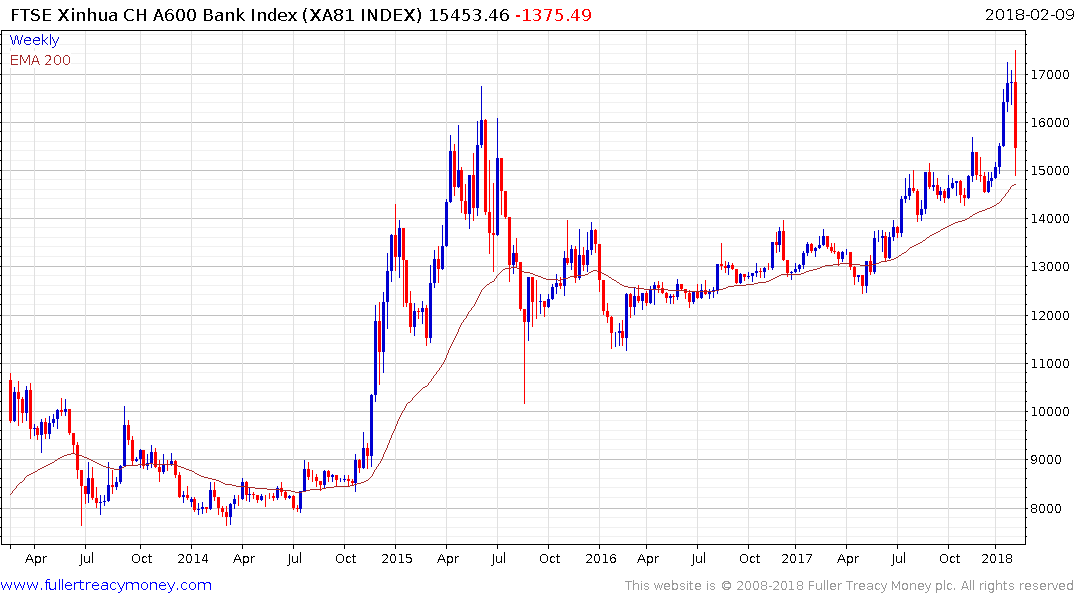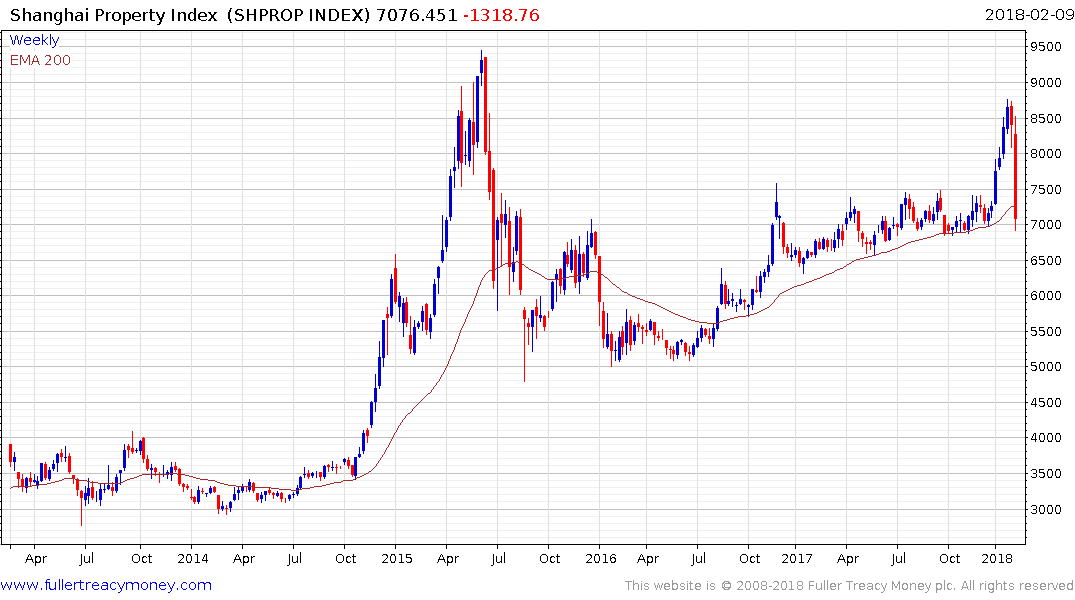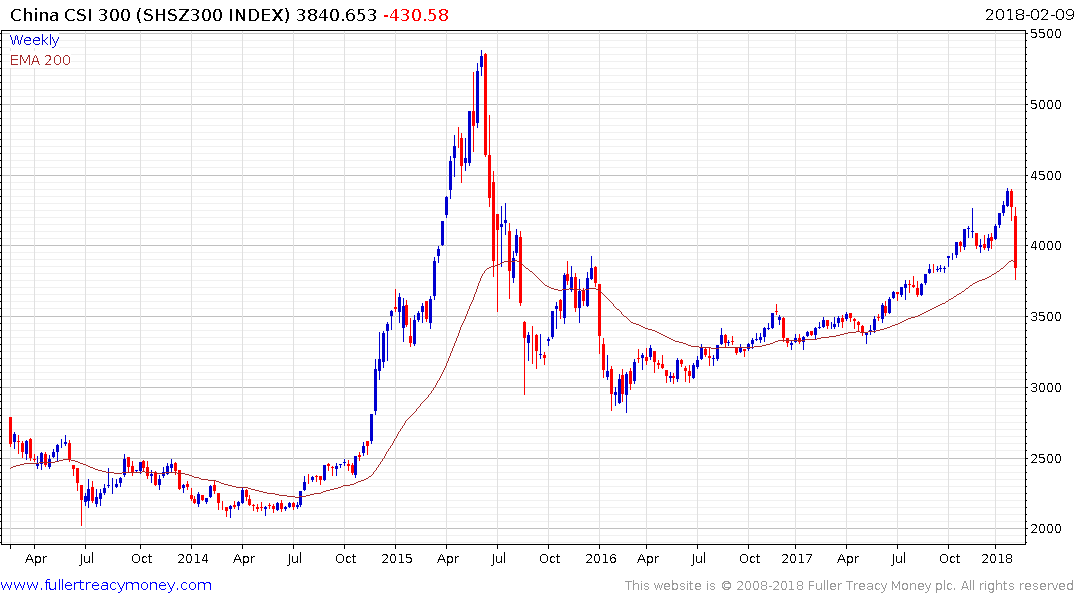China Banks' Stealth Meltdown
This article by Shuli Ren for Bloomberg may be of interest to subscribers. Here is a section:
In just six months, China CITIC Bank Corp. culled its investment receivables by almost half to 585 billion yuan ($92 billion) as of Sept. 30. That figure must be even smaller now after Beijing fired another warning shot in November. It's a similar picture at other mid-sized lenders such as China Everbright Bank Co. and China Minsheng Banking Corp.
But banks have to make money somehow. Replacing wealth- management products has been an explosion in consumer loans, from mortgages to auto and cash advances. Financial institutions in China lent 6.2 trillion yuan to households last year, up 30 percent from 2016. Should the CBRC turn its blowtorch on that revenue stream as well, bank earnings will take a hit.
To be sure, the biggest will get by just fine. They can always rely on their strong deposit franchises for cheap funding and continue lending to low-risk state-owned enterprises. It's more difficult for mid-sized banks, which rely on the interbank market for funding. Three-month Shibor is at 4.8 percent versus 2.8 percent in September 2016.
One may argue that stock market fluctuations don't matter. But in this case they do, because China's smaller banks are eager to shore up capital as they brace for stricter cushioning rules. According to UBS Group AG analyst Jason Bedford, bringing the sector's core Tier 1 capital ratio to 10 percent would require more than 1 trillion yuan of capital raising, with smaller and policy banks bearing much of the burden.
In August, Bank of Jiangsu Co. reopened the A-share IPO market for lenders, one that had been dormant since Everbright's listing in 2010. Since then, more than 5 billion yuan of proceeds have been raised and there are about 20 more financial institutions in the queue. If stocks sink, banks will find tapping public markets difficult because of the unspoken rule that new bank shares can't be sold below book.
The bulk of the dodgy lending issues and non-performing loans people tend to worry about in the Chinese banking sector reside in the largely unlisted smaller banks so the issue is difficult to monitor. As sources of funding for these small institutions are cut off, with bans on wealth product creation and prohibition on consumer leverage coming into effect, the appetite of Chinese investors for IPOs and the valuations they achieve will be a useful indicator of how the challenges the banking sector has are viewed by domestic investors.

The FTSE China A600 Banks Index unwound all of its overbought condition relative to the trend mean over the last three sessions. The market is going to be shut form the middle of next week for Chinese New Year. It is reasonable to expect government forces to want a reasonably stable market before everyone takes a week off and goes home to think about their positions. A period of support building is going to be required to confirm demand dominance in the region of the trend mean.

The Shanghai Property Index pulled back even more violently this week and needs to hold this week’s lows if a critical loss of uptrend consistency is to be avoided.

The CSI 300 Index is heavily weighted by both bank and property companies so it has also pulled back sharply to the region of the trend mean.


